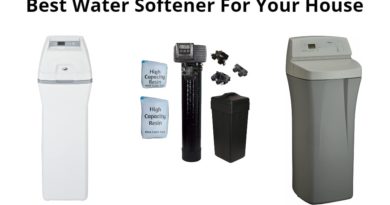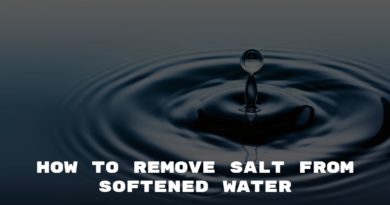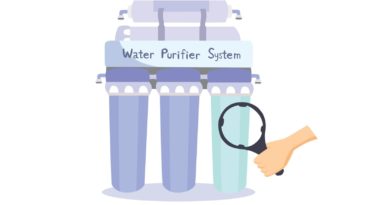Best Tankless Water Heater
**Articles may contain links that I earn compensation for if clicked and you make a purchase. As an Amazon Associate, I earn from qualifying purchases. These earnings do not actually impact the price of the product or service.
Especially for homes with limited space, a tankless water heater can be a great choice for your home. It is also great for those that go through a large quantity of hot water, since there is always hot water as long as the unit is running. I remember growing up always having to wait a certain period of time after the other person showers to make sure there is enough hot water for me. With a tankless water heater, there is enough for everyone. There are so many options on the market, it can be hard to tell what kind of performance the unit brings. In this article we help lay out everything you need to know before choosing the one for you.
Table of Contents
What Is It?
A tankless water heater is exactly as the name suggests. It heats up water without heating up an entire tank of water. Unlike tank water heaters, tankless water heaters heat the water directly at the source. As the water travels through the pipe, the water heater heats the water using gas or electricity. The tank models are limited by the amount of water in the tank, but for tankless water heaters, hot water is limitless. Per-minute, a typical tankless water heater can provide anywhere from 2-5 gallons. This is a great option for families that need a large quantity of hot water since it is always readily available.
Types of Tankless Water Heaters
The two different types of tankless water heaters are just like their tanked alternative: electric and gas. It is commonly debated which one is better, but it really just depends on what is more suitable for your home. Also, most people just choose to go with whichever power supply their home comes with, since switching can cost a lot.
Some things to consider are efficiency and overall costs. Electric heaters are usually more efficient but also require more power to use. For systems that power the whole house, it can use more than 25,000 watts of electricity, whereas a tanked water heater will only use about 5,000 watts. This is important to consider since your electricity bill will most likely be much higher. Gas tankless heaters are less efficient, but they are much cheaper to run, as natural gas is cheaper than electricity in the U.S. They also typically last longer than electric tankless heater systems and also conventional water heaters. You can also note that with a gas heater, it is less likely that you will lose your supply of hot water. Electricity is much more likely to go out in an emergency.
Advantages and Disadvantages
Tankless water heaters have some advantages and disadvantages. Depending on your needs, you can determine whether or not this system is optimal for you. Since they are instant, water usage is usually decreased since you do not have to wait for it to heat up. If you value some of the features a tankless water heater offers, it may be the system for you. Some advantages include:
- Only powers up when the hot water faucet is on- This is a great feature that saves energy when not in use. Traditional water heaters need to continuously keep the tank ready for use.
- Uses less energy- You do not need to worry about the costs of heating up gallons of water at all times.
- Continuous supply- You do not need to worry about running out of hot water.
- Compact- They usually mount on the wall and do not include a bulky tank. It is great for those with limited space.
- Easy to install a tankless water heater yourself.
Some disadvantages include:
- Upfront cost- Since these units are more technologically advanced, the price of a unit is more than a traditional one would cost.
- One faucet at a time- There are smaller options that only service one faucet at a time. This would not be sufficient for larger households.
- Venting requirements- Since tankless heaters heat water instantly, they are powered by high-powered burners. These may have specific venting requirements that require professional installation. This adds to the initial cost of the system.
A tankless system is a large investment, so it is important to consider all the factors and needs of your home before diving in to purchase one.
What to Consider Before Buying
There are many benefits that a tankless water heater can bring. When choosing one, make sure that it has the features that benefit your home and do not just sound great. Depending on the number of people in your household and your average water usage, there can be certain functions and features to look for in a water heater. Some main factors to consider when making your choice include:
- Fuel Type- It is important to determine which one is more optimal for your home. Depending on whether you want to spend more upfront or have a higher monthly cost, there are options for you. You can always opt to switch from the one in your home, but there will be installation costs. Gas ones are cheaper to run but require more complex installation and higher upfront costs.
- Flow Rate- This refers to the volume of water that the heater is able to produce. The flow rate should depend on the number of people in your home and water usage. A higher flow rate is better for those with larger households, especially if many fixtures or appliances are running at the same time. An inadequate flow rate can make a tankless water heater useless.
- Power Input- This refers to the energy needed to heat the water to the desired temperature. You want a unit that can heat your water efficiently without using too much power.
- Venting- This factor is important, especially for gas water heaters. There are condensing and non-condensing systems. They have different installation needs and should be considered before purchasing. These may require expert installation.
Top 5 Tankless Water Heaters
EcoSmart 13 kW Electric Tankless Water Heater
This EcoSmart unit is a 13 kW tankless water heater that is optimal for areas where the water temperature is 67° or above. It is able to heat up to two gallons per minute, which is around one shower and one sink. This product is not optimal for use in colder climates since it uses slightly less power. It is great for point-of-use heaters for a single application. This is a great compact heater for households that have fewer people and use less water. This water heater has an easy-to-use digital temperature control, which lets you set the temperature of the unit to the degree you need, between 80 and 140°.
Pros:
- Small and compact, great for small homes
- Consistent hot water
- Energy savings
Cons:
- Can be too small for some homes
- Warranty only works if installed by professional
EcoSmart 27 kW Electric Tankless Water Heater
This EcoSmart electric tankless water heater requires 27kW and is great for bigger households. It produces a high flow rate and even works in colder climates as low as 45°. This system is able to provide anywhere from 2.7 and 6.5 gallons-per-minute depending on the temperature of the source water. This system also comes with a simple digital temperature display that lets you easily adjust the temperature that you want your water to be. Like the other EcoSmart models, this system has a patented Smart Modulating technology that determines as changes the amount of energy needed to heat the water. This helps to reduce the amount of energy used and save you money on your bills.
Pros:
- Great for larger homes
- Able to heat even in colder temperatures
- Smart modulating technology saves energy
Cons:
- Warranty only for those with expert installation
- Must be descaled every year for optimal performance
Rinnai Large Tankless Water Heater
The Rinnai system is a high-efficiency system that is made for indoor use. It has up to a 6.5 gallons-per-minute flow rate. This is optimal for bigger households that use a lot of water. This water heater sets itself apart with the latest technology. It heats up to five fixtures at a time and is capable of wi-fi connection. With the mobile app, you are able to set times and schedules throughout the day and remotely set the unit to vacation mode. This can help to save energy when the system is not being used.
Pros:
- Great added technology features
- Size is great for medium homes
- Long average life expectancy
Cons:
- Gas system may be hard to install
- Range of temperatures is slightly less
Biselong 12 kW Electric Tankless Hot Water Heater
The Biselong heater is an extremely compact heater that requires 12kW to power. It is able to heat up to 1.8 GPM, which is less than other tankless heaters. It is most optimal for bathing, but can also be used under the sink or for kitchen appliances as well. We recommend it for small apartments, commercial places, or even as an RV water heating system. It has a modern, sleek design that can blend in with your decor. You can easily set the desired temperature with the digital display. With a simple and easy-to-use design, it is easily installed onto any surface at any angle.
Pros:
- Compact design can be mounted anywhere
- Machine auto stops when not in use
- Sleek design that blends in
Cons:
- May be too small for whole-house use
- More optimal for single-use appliances
Rinnai Outdoor Low NOx Tankless Natural Gas Water Heater
The Rinnai system is heated using gas and is most optimal for outdoor use. It complies with the South Coast Air Quality Management and has low NOx emissions. For the amount of water it is able to produce, the unit is lightweight and compact. The maximum flow rate is 6.5 gallons-per-minute, which is great for households with more people since it is able to heat up to three fixtures at one. Like the other Rinnai systems, this one also has innovative technology that allows you to remotely shut the appliance off when on vacation. It is energy efficient and also has superior performance.
Pros:
- Great for outdoor installation
- Wi-fi compatible for remote controls
- Great for larger households while staying efficient
Cons:
- No remote included
- Limited temperature selection
Last Thoughts
Depending on the type of system you need for your home, there is a unit that is most optimal for you. Be sure to first determine your water usage and the type of unit you want. Also, keep in mind the type of installation since those costs can rack up as well. Investing in a quality water heater system can greatly improve your quality of life. Tankless systems are slightly more expensive, but the performance can make it a worthwhile purchase.


